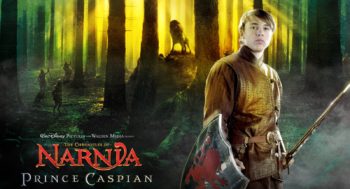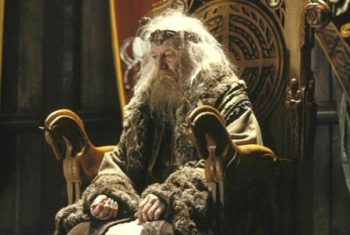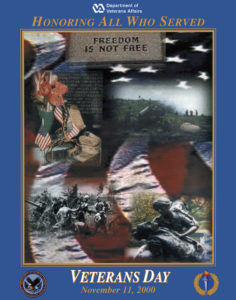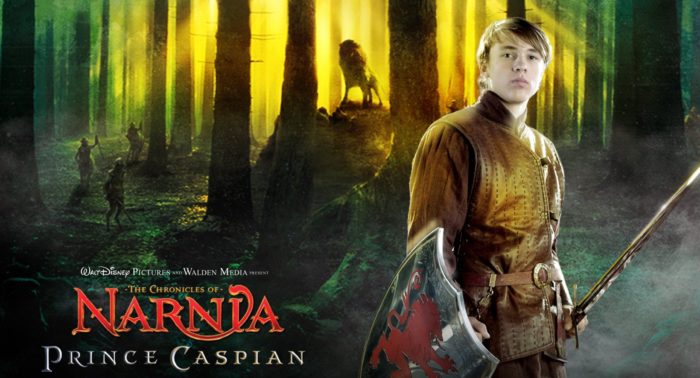Veterans Day: Mayhem And Its Meaning, A Reprise
Today, in the US we are celebrating a holiday which actually took place yesterday: Veterans Day. As so often happens, if the holiday falls on a Sunday, we extend the celebration to a Monday as a national holiday that gives a number of workers paid time off. I want to post something to honor our veterans. No matter what their service or what the duration, these military veterans, their families, and their friends, have sacrificed for the rest of us.
Interestingly, speculative fiction frequently involves conflict, which in turn can create veterans. If in doubt, read the current Spec Faith series by Travis Perry and Travis Chapman entitled “Speculative Fiction Writer’s Guide to War.”
At the same time, as the anniversary of C. S. Lewis’s death approaches (November 23), I want to cast some light on him and his influence. Remarkably, in our archives is an article which, at least in part, accomplishes both goals. Here, then is “Mayhem And Its Meaning.”
____*****____
Much speculative literature, Christian or otherwise, is marked by mayhem—a violent disruption to life and/or to society. Often mayhem shows up in the form of an actual battle.
 J.R.R. Tolkien’s The Hobbit ends in the dramatic Battle of Five Armies, for example, when old animosities between dwarfs and men are subsumed in the conflict against the army of goblins and Wargs. George Lucas’s Star Wars IV: A New Hope is set in a universe suffering mayhem because of the civil war between the Federation and the Rebels. Similarly, Prince Caspian by C.S. Lewis takes place in the middle of a conflict between the Old Narnians and the Telmarines who have taken control.
J.R.R. Tolkien’s The Hobbit ends in the dramatic Battle of Five Armies, for example, when old animosities between dwarfs and men are subsumed in the conflict against the army of goblins and Wargs. George Lucas’s Star Wars IV: A New Hope is set in a universe suffering mayhem because of the civil war between the Federation and the Rebels. Similarly, Prince Caspian by C.S. Lewis takes place in the middle of a conflict between the Old Narnians and the Telmarines who have taken control.
Other stories with grand battles that come to mind include The Lion, the Witch, and the Wardrobe by Lewis, The Black Cauldron and The High King by Lloyd Alexander, Return of the Guardian King by Karen Hancock, From Darkness Won by Jill Williamson, The Door Within trilogy by Wayne Thomas Batson, Daughter of Light by Morgan Busse, and Patrick Carr’s A Draw of Kings, third in his The Staff and The Sword trilogy.
Tolkien’s Lord of the Rings trilogy might be the benchmark for grand battles, notably in the battle of Helm’s Deep in The Two Towers, the Battle of the Pelennor Fields and the Battle of Bywater in The Return of the King.
Not all mayhem is the direct result of an actual battle. Much occurs as a result of the threat of battle or from the efforts to escape a superior force. Certainly Book 1 of Fellowship of the Ring makes the most of the disruption of Frodo’s life and plans by the arrival of the Black Riders and their subsequent efforts to hunt Frodo down. The ultimate confrontation takes place following a skirmish on Weathertop as the wounded Frodo escapes on the elfen horse and reaches the Ford of Bruinen, barely avoiding the ambush of the nine Black Riders.
Another similar near miss took place in episodes of Star Trek: The Next Generation as the crew of the Enterprise sought to evade the Borg. Then too, in The Hobbit Bilbo discovers the One Ring in the goblins’ tunnels as he tries to avoid capture. He must then escape Gollum as well.
 Not all mayhem comes from attempted or actuated assault. Some is the result of corrupting influence. In The Two Towers Wormtongue, for instance, nearly handed the men of Rohan over to Saruman because of his poisonous council to King Théoden. Saruman himself turned traitor and held Gandalf captive, preventing him from meeting Frodo when he’d promised. In Lewis’s The Last Battle, Shift duped Puzzle into pretending to be Aslan, throwing Narnia into confusion. In The Silver Chair an enchantress held the true prince captive by a spell that made him forget who he was.
Not all mayhem comes from attempted or actuated assault. Some is the result of corrupting influence. In The Two Towers Wormtongue, for instance, nearly handed the men of Rohan over to Saruman because of his poisonous council to King Théoden. Saruman himself turned traitor and held Gandalf captive, preventing him from meeting Frodo when he’d promised. In Lewis’s The Last Battle, Shift duped Puzzle into pretending to be Aslan, throwing Narnia into confusion. In The Silver Chair an enchantress held the true prince captive by a spell that made him forget who he was.
Some of the most powerful and effective mayhem results in defeat of the forces of good, at least for a time. The White Witch killed Aslan on the stone table, Gandalf fell to his death in the Mines of Moria, Captain Picard in an episode of Star Trek: The Next Generation is captured by the Borg and turned into one of them, and the orcs kill Boromir in the opening of The Two Towers. Shannon Dittemore’s Angel Eyes, a contemporary Christian supernatural young adult novel released in 2012, shows the mayhem of evil appearing to win against forces of good when main character Brielle’s best friend is murdered.
Why does mayhem play such an important role in speculative fiction? The clearest and best explanation is that these stories reveal the great struggle of the world—the struggle between the rebel Satan and God. All of creation is aligning with one or the other. The skirmishes, the battles, the sacrifices in speculative fiction are echoes of God’s great triumph over sin and death and His yet-to-take-place final judgment over those who stand against Him.
While stories in the general market are not intentionally reflecting this spiritual reality, they nonetheless reveal the truth that the world is not as it should be, that there are forces of evil, seemingly insurmountable at times, against which forces of good must strive.
Mayhem in speculative fiction also shows that the struggle isn’t just external. Mankind struggles against that part of ourselves that seems bewitched or entrapped or bound to a chair.
It also shows that the conflict has consequences. If left unchecked, evil spreads, but even when it is resisted, people die and the world changes. Still, hope infuses most speculative fiction, and ultimately Lewis showed it best when his characters didn’t leave Narnia but went further up and further in.
 What are your favorite battles in speculative fiction? What other purpose might they serve besides showing the ultimate battle between spiritual forces?
What are your favorite battles in speculative fiction? What other purpose might they serve besides showing the ultimate battle between spiritual forces?
Minus a few additions, this post first appeared here at Spec Faith in September 2012.
____*****____
To any veterans who might be reading: thank you from the bottom of my heart for the sacrifice you made and the service you gave. Blessings.












































Yes. I think even when people are atheist they understand there is a battle between good and evil. I hate the shows where the bad guys are the hero’s. They may not realize it and may not be purposefully doing it, but I think they are trying to go against God’s plan. I don’t watch them. BTW, have you seen Hunter Killer yet. Great show. Best I’d seen in a while!
I agree, Dona. I also hate the ones that blur the lines so that the good guy is pretty much bad but not all the way bad. I know the idea is that none of us is good—which is a Biblical concept, though they don’t realize it. Still, at some point someone should aim for what is good and right and true, I think.
I haven’t seen Hunter Killer. Glad you’ve found it.
Becky